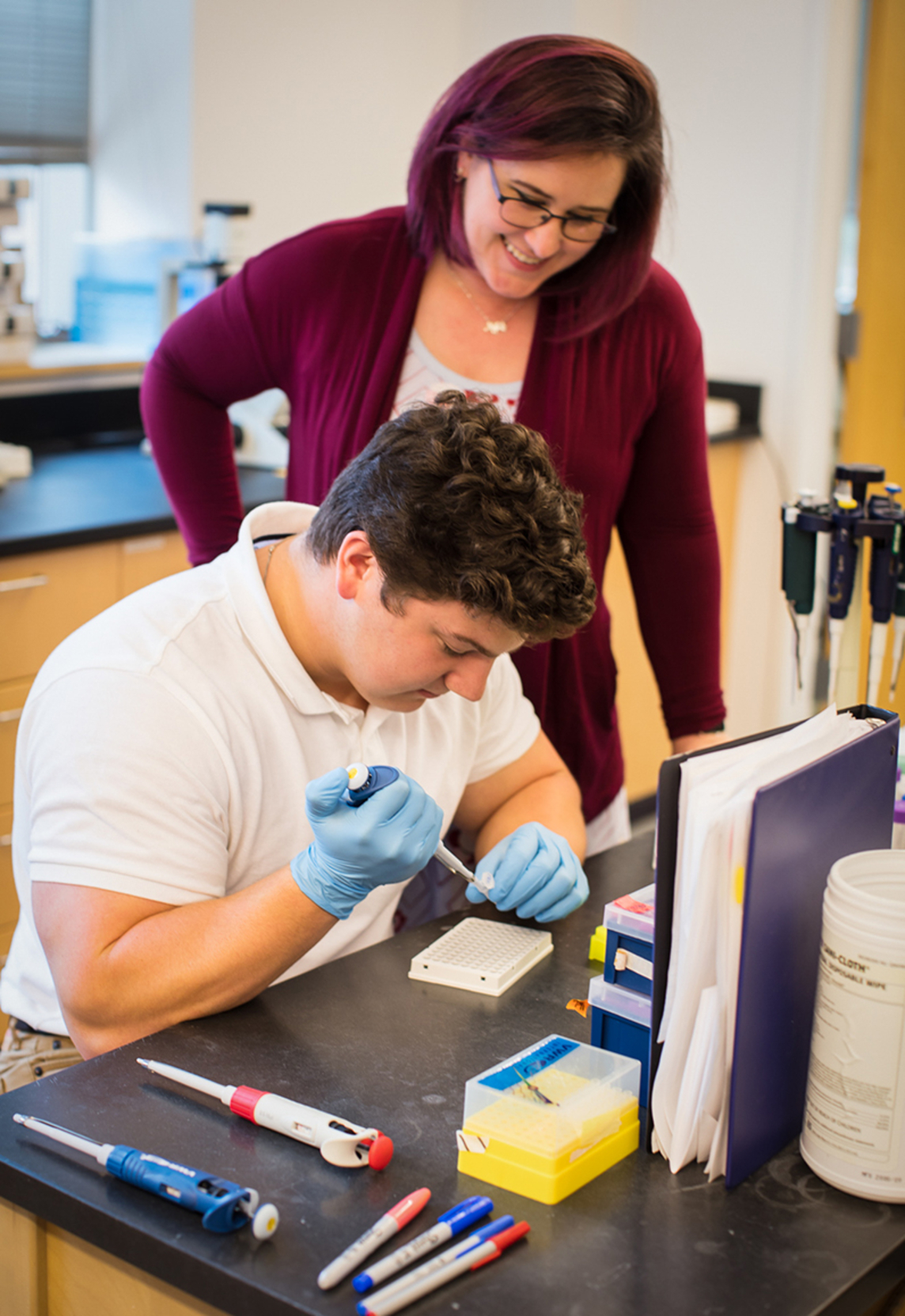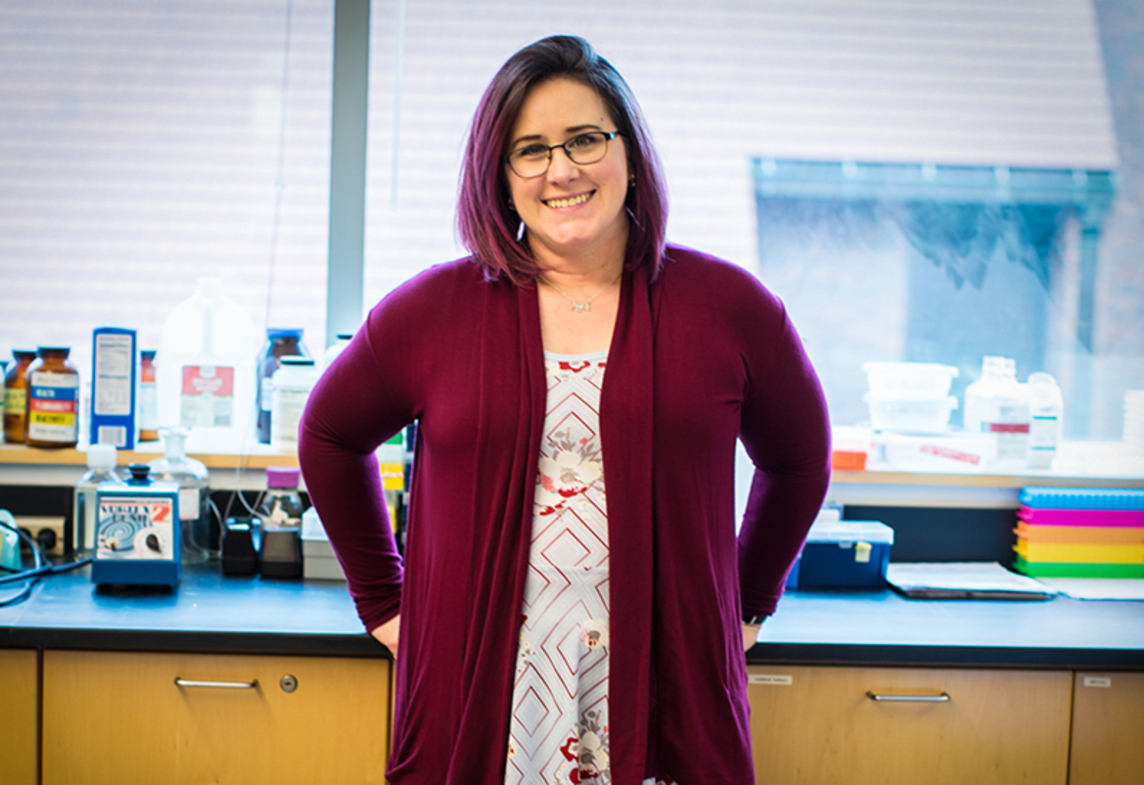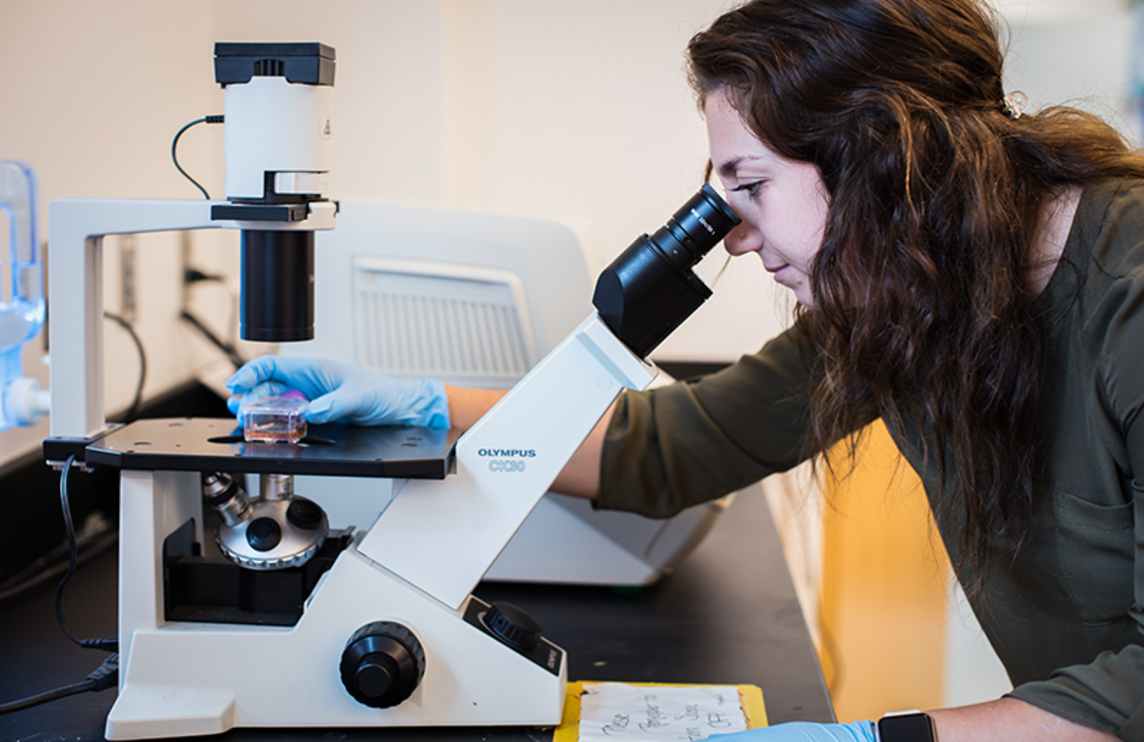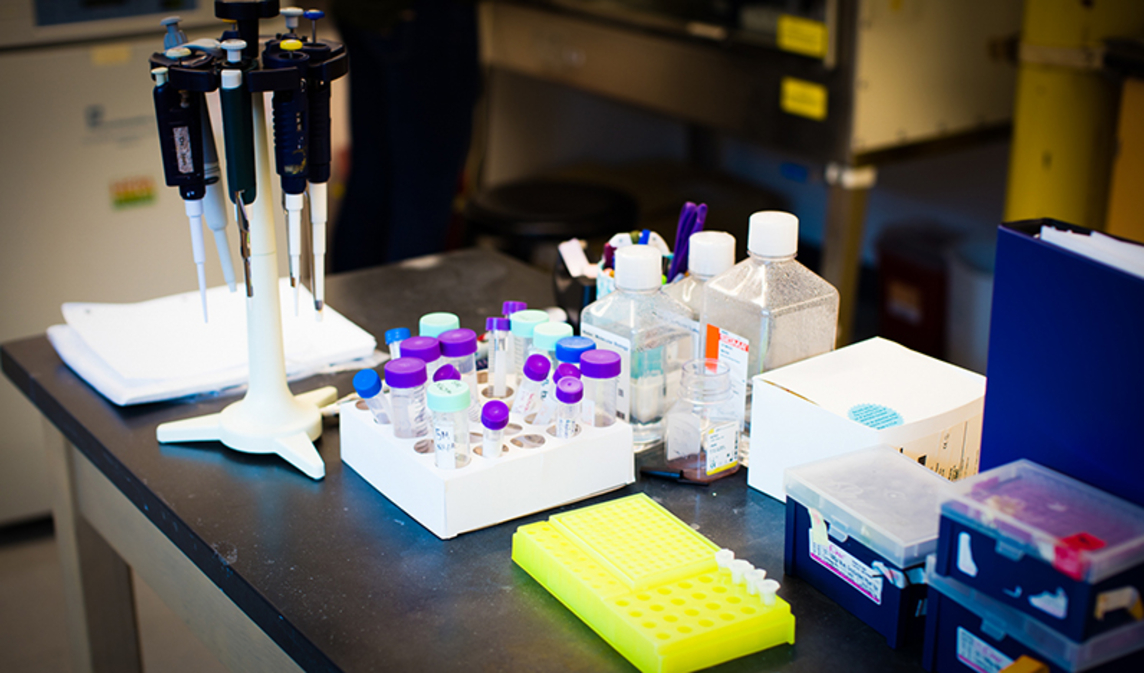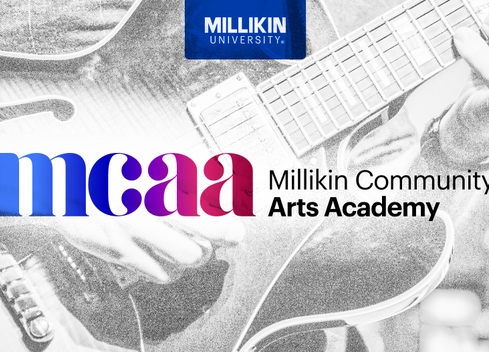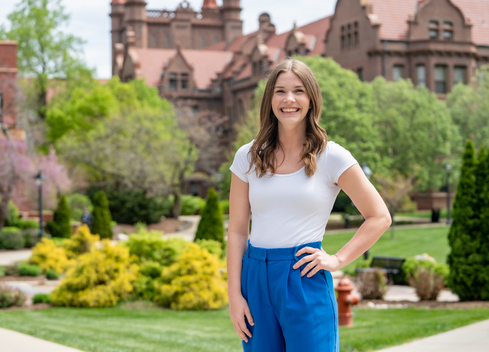Biology majors using research to make a difference
At Millikin University, students get many types of Performance Learning opportunities, no matter what program or academic area it might be. Millikin faculty strongly encourage students to engage in hands-on work within their major so that they have a chance to really see if it's something they want to do for their career.Dr. Jennifer Schroeder, associate professor of biology and director of academic effectiveness, is incorporating the Performance Learning mission with her teachings at Millikin, both in the classroom and in the lab where her students are working on cancer research.
For a decade, Millikin students have been involved with cancer research, specifically breast cancer-related research, and currently, three students are continuing that effort. Among those students is Stephen DeMartini, a senior biology major from Gillespie, Ill., who is studying the effects of herbicides on different stress response mechanisms within cancer cells.
"Stephen has been working with me for the last year. We're doing a project where's he's studying the effects of the way we use herbicides in agriculture and how they affect oxidative stress levels in the cells," Schroeder said in an interview with the Herald & Review. "That's the way cells are able to cope with different stressors. Cancer cells have a different way of approaching it and essentially try to fight off the stressor and survive longer than a regular cell."
The goal of the research is to figure out how exposure to certain chemicals could increase the risk of cancer. Schroeder says there's a tie-in particularly with high incidence rates of reproductive cancers in rural areas.
"There are several reasons, but one is that those species are exposed to more chemicals," said Schroeder. Despite several studies examining the effects of the chemicals, Schroeder says little research has been done both on human cells and within physiological ranges of exposure.
DeMartini aspires to become a surgeon and he knows he will encounter cancer patients often in his career.
"I know everyone's had cancer in their life in some manner," he said. "Moving into medicine, it's a major component of that and I know that's going to be a part of medicine for the long run. It's important to have experience with it now."
Madeline Batek, a senior biology major from Chillicothe, Ill., is researching whether essential oils that are often topically applied to the skin may affect breast cancer growth rates.
"These can often be caustic in high concentrations, and we are finding very interesting results due to the volatility of some of these oils," said Schroeder. "Those that have a stronger scent seem to cause more cell death, even when not directly applied to the cells."
Batek will be continuing her work throughout the rest of the 2019-20 academic year, and will be trying to identify the specific chemicals within the oils that are causing this result.
Although she's in the early stages of her research, Alyssa White, a senior biology major from Mokena, Ill., is using breast cancer cells as a model cell type to look at how estrogens affect the expression of proteins that are indicated in different forms of arthritis.
"I want to work with arthritis because I have had it since I was 18 months old," said White. "I have not figured out what specific genes I want to be affected, but that will be determined soon. I will be splitting and feeding those cells and genes every week and watching how the specific gene will affect them."
All of the studies the students are currently performing are done using MCF-7 human breast cancer cells. "These are cells that grow well in culture and have been used for decades to study the mechanisms for how breast cancers develop, grow and respond to treatment," said Schroeder. "I used them throughout my graduate and postdoctoral research, and our undergraduates now have a chance to work with them and learn many of the techniques used in an academic research setting."
Since spring 2009, Schroeder has trained and worked with 32 students in her research lab, as well as helped mentor seven students in other labs due to overlap between their research interests. Several have now gone on beyond Millikin to thrive in graduate research or medical school.
The students plan to publish their research in professional journals which may be read and used by other universities and research facilities. "It's great because we also give them chances to present their research off campus at conferences as well as on campus at events like Celebrations of Scholarship," said Schroeder.
